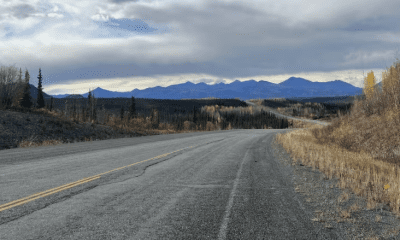Canada News
‘Exceptionally serious:’ Report says half of Canadian wildlife declining

World Wildlife Fund (Wikimedia Commons, Fair Use)
An extensive survey of 903 species of Canadian birds, fish, mammals, reptiles and amphibians over more than four decades has found that half of them are in serious population decline.
Declining species lost a total of 83 per cent of their numbers between 1970 and 2014, says the report released Thursday by the World Wildlife Fund. Species protected by federal legislation shrank nearly as quickly as those that weren’t.
“In general terms, the Species At Risk Act does not seem to have made any difference,” said WWF president David Miller. “There’s an incredible urgency to reverse the decline.”
The Living Planet Index could be the most comprehensive assessment of wildlife numbers in Canada.
The organization looked at 3,689 different populations of 386 kinds of birds, 365 fish species, 106 different mammals and 46 reptiles and amphibians. It combined more than 400 datasets from government, academe, industry and citizen science using a peer-reviewed method developed by the Zoological Society of London.
Overall numbers for all 903 species decreased by eight per cent over the 44 years studied.
A total of 45 species were stable and 407 increased. Many of those benefited from large-scale conservation measures.
Waterfowl, which increased by 54 per cent, have enjoyed widespread wetland preservation. Birds such as falcons are no longer harmed by DDT and grew by 88 per cent.
Others on the increase were generalist species such as deer or geese that live well alongside humans.
The survey found a familiar combination of reasons for declining populations: habitat loss, climate change, invasive species and pollution.
Miller said it was surprising to find legislation such as the Species At Risk Act, passed in 2004, has done nothing to slow the decline.
“What the science says is that it hasn’t made a material difference to the species.”
Species listed under the act declined by 63 per cent over the study period. As well, the study suggests the rate of decline may have actually picked up after the act was passed.
Part of that is due to the time it takes for action. Miller points out the St. Lawrence beluga was known to be at risk even before the act was passed, yet it took until 2015 for protections to be put in place.
“There have been incredible delays in taking the steps mandated under the act.”
The legislation may no longer be the best tool to protect wildlife, said Miller. There are too many shrinking species to protect each one individually.
“We probably need a different approach,” he said. “The challenges are so complex and have multiple causes. You can’t rely simply on a plan for species. You have to look at a whole ecosystem.”
There isn’t, for example, much that can be done to halt the slow disappearance of Pacific killer whales until scientists understand why chinook salmon — the orca’s main food — are declining.
It will take networks of protected areas to reverse the trends, said Miller. He noted the survey does show that a collective approach — such as that taken to protect waterfowl — can make a difference.
But the breadth and speed of the decline means action must be taken quickly.
“Even for us, it’s sobering to see the results,” Miller said.
“The declines are exceptionally serious. We need real urgency to take action.”





















